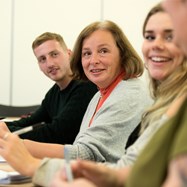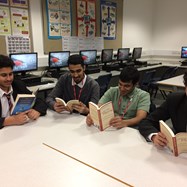OFFA monitoring report 2016
12 May 2016
Commenting on the annual monitoring report by the Office for Fair Access (OFFA) Dr Wendy Piatt, Director General of the Russell Group, said:
"Ensuring our doors are wide open to talented and able students from all backgrounds really matters to Russell Group universities and OFFA’s report is right to recognise that real progress has been made. Young people from the most disadvantaged areas in 2015 were around 40 per cent more likely to enter a leading university than four years ago.
"But we are far from complacent. In 2016-17 the 20 Russell Group universities in England will be investing £243 million from additional fee income alone on scholarships, fee waivers and bursaries and outreach activities aimed at the most disadvantaged students. These outreach activities include working closely and extensively with teachers and schools particularly in deprived areas to encourage more disadvantaged students to apply to our universities and maximise their chances of winning a place.
“Our universities work hard to spread the word to students that with the right grades in the right subjects a place at a Russell Group university is well within reach. But they cannot solve this problem alone. There are still far too many children from disadvantaged backgrounds underachieving at school and receiving poor advice and guidance. It will take time, commitment, and sustained action from a range of agencies to raise pupils' aspirations, increase attainment and improve the advice and guidance offered."
Notes to Editors
- Students eligible for free school meals (FSM) are more likely than ever to attend highly-selective institutions. In 2014 FSM-eligible pupils were 39% more likely to enter high tariff institutions than they were in 2011.
- Department for Education destination data published in January showed that the number of students eligible for free school meals going to Russell Group universities has increased every year since 2010. In 2013, almost 13% of the students (1820) eligible for free school meals who went into higher education went to a Russell Group university, up from 7.5% (910) in 2010.
- According to HESA since 2009/10, the number of young, full-time undergraduate students who attended state schools going to Russell Group universities each year has increased by 8.2%, from 56,440 to 61,080 in 2014/15 and the number of young, full-time undergraduate students from low socioeconomic backgrounds entering a Russell Group university has increased by 14%, from 12,655 to 14,415 in 2014/15.
- Students eligible for free school meals are significantly less likely to achieve 5 or more A*-C grades at GCSE including English and Maths than their more advantaged peers (33.1% vs 60.9% in 2015 according to DfE data published earlier this year). They are also significantly less likely to achieve the EBacc than their more advantaged peers (9.9% vs 26.6%).
- Fewer than 8,500 students eligible for Free School Meals in 2010/11 took three A-levels. Of these students, only 546 achieved three or more A* or A grades.
- In 2014-15, English Russell Group universities spent £178 million of their extra fee income on bursaries and scholarships. This represents an average of £8.9 million per university, with some spending as much as £19 million.
- Our guide Informed Choices, first published in 2011, is put together in collaboration with the Heads of Admission at the 24 Russell Group universities and includes advice on the best subject combinations for a wide range of university courses as well as advice on the best choices for students if they don’t know what they want to study after school and need to keep their options open.
- The Russell Group Opening Doors report and accompanying films examine the root causes of under-representation of students from disadvantaged backgrounds, and gives examples of what Russell Group universities are doing to help tackle the problem.
-
Hamir Patel
hamir.patel@russellgroup.ac.uk
020 3816 1316
-
Hollie Chandler
Hollie.Chandler@russellgroup.ac.uk
020 3816 1307
 X
X


